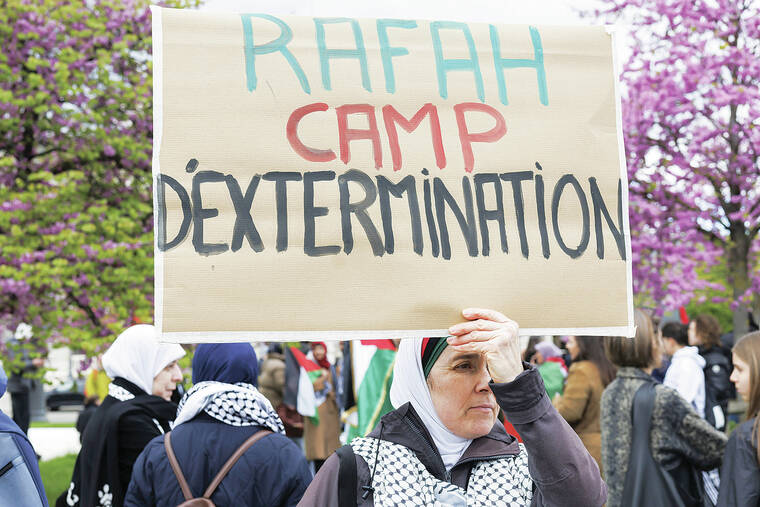Israel plans to expand ‘humanitarian zone’ if it invades Rafah
JERUSALEM — If Israel were to begin an invasion in Rafah, a city in the southern Gaza Strip where 1 million displaced Palestinians are sheltering, an Israeli-designated “humanitarian zone” along the coast would be expanded to take in more civilians, an Israeli military official said Monday evening.
The comments were among the first indications of the Israeli military’s plans for civilians if it were to launch a major ground offensive in Rafah. The Biden administration has urged Israel to forgo such an operation because of the risks it would pose to displaced Palestinians.
ADVERTISING
Palestinians who have sought shelter in Rafah have been bracing for an Israeli incursion for months. Before arriving in Rafah, many had followed earlier Israeli calls to evacuate other areas in Gaza only to encounter bombardment in those places, too.
Israeli officials have repeatedly said that the army will enter Rafah to fight Hamas battalions there, bucking international pressure to back off any operation.
In the case of an invasion, Israel would tell Palestinians to go to the enlarged “humanitarian zone,” which would include a narrow strip of beachside land known as Muwasi, and other unidentified areas in Gaza, said the Israeli military official, who spoke on condition of anonymity to discuss internal deliberations.
It was unclear how much land beyond Muwasi that Israel would seek to designate as a “humanitarian zone” for civilians. Satellite imagery from Planet Labs revealed a significant increase in the number of people there over the last few months.
The fighting continued elsewhere in Gaza on Tuesday, with the Israeli military saying it carried out several airstrikes in Beit Lahia, one of the northernmost cities in the Gaza Strip.
The Israeli strikes killed at least one person and injured several others in Beit Lahia and damaged and set fire to several houses in nearby Gaza City, according to Wafa, the Palestinian Authority’s official news agency. The strikes were carried out in response to rockets launched from the area toward southern Israel, all of which were successfully intercepted, according to the military.
At a news conference in Washington on Tuesday, David Satterfield, the U.S. special envoy for humanitarian issues in Gaza, reiterated the Biden administration’s concerns about Israel’s plans to invade Rafah.
“We could not support a Rafah ground operation without an appropriate, credible, executable humanitarian plan,” Satterfield said.
© 2024 The New York Times Company





